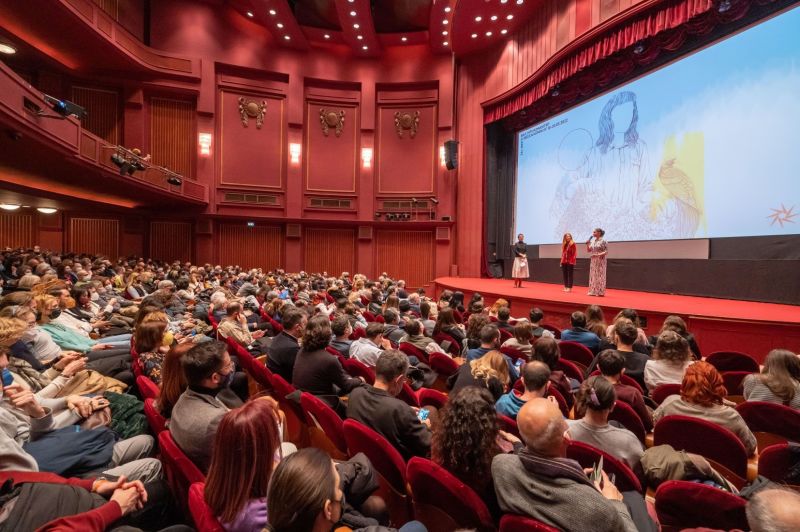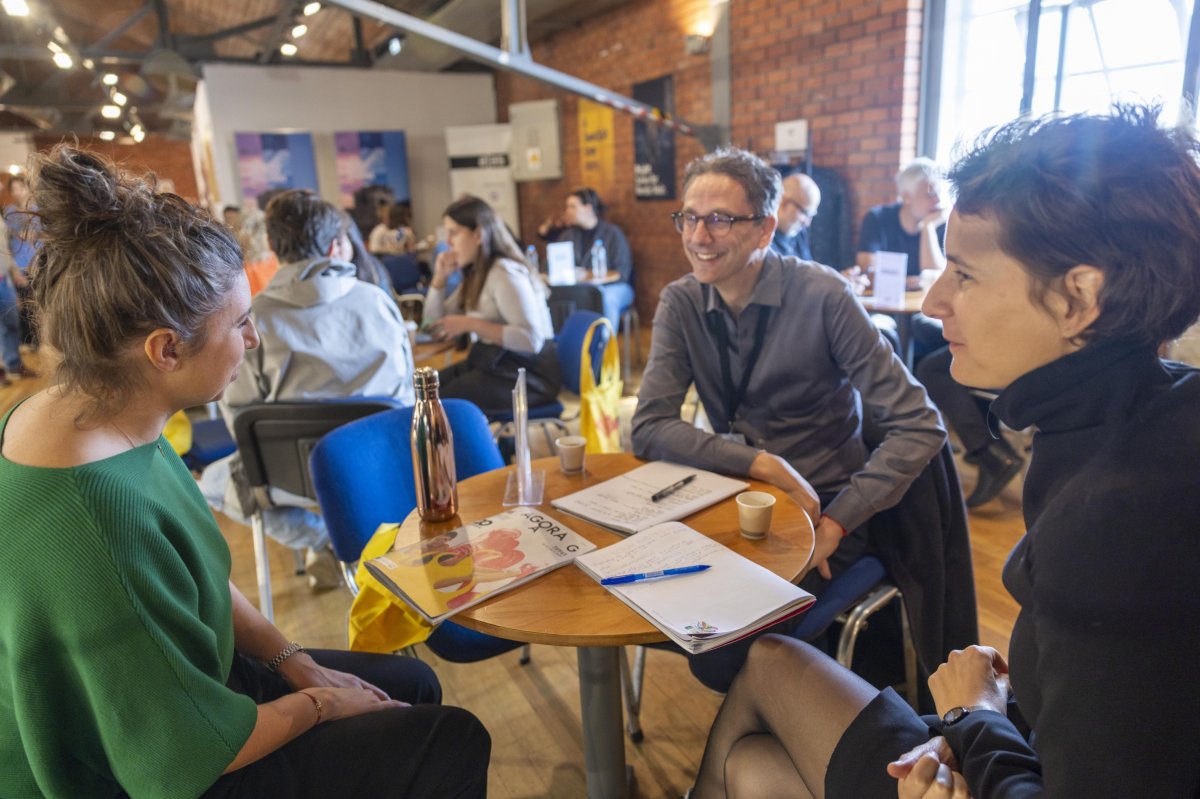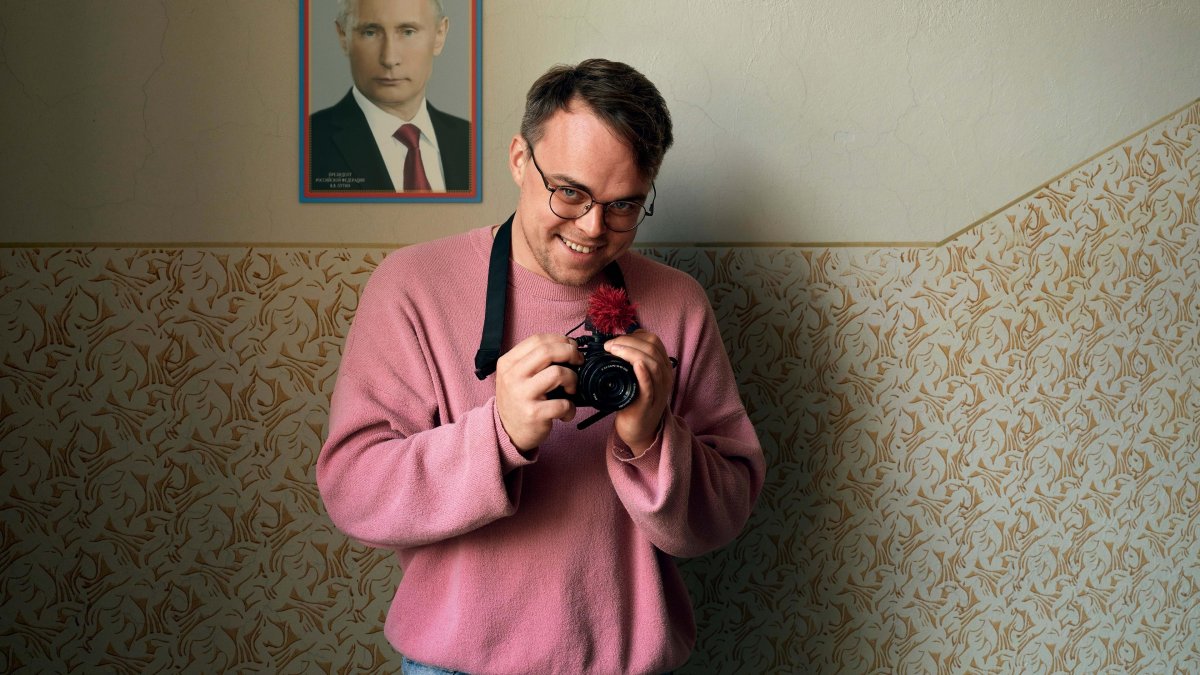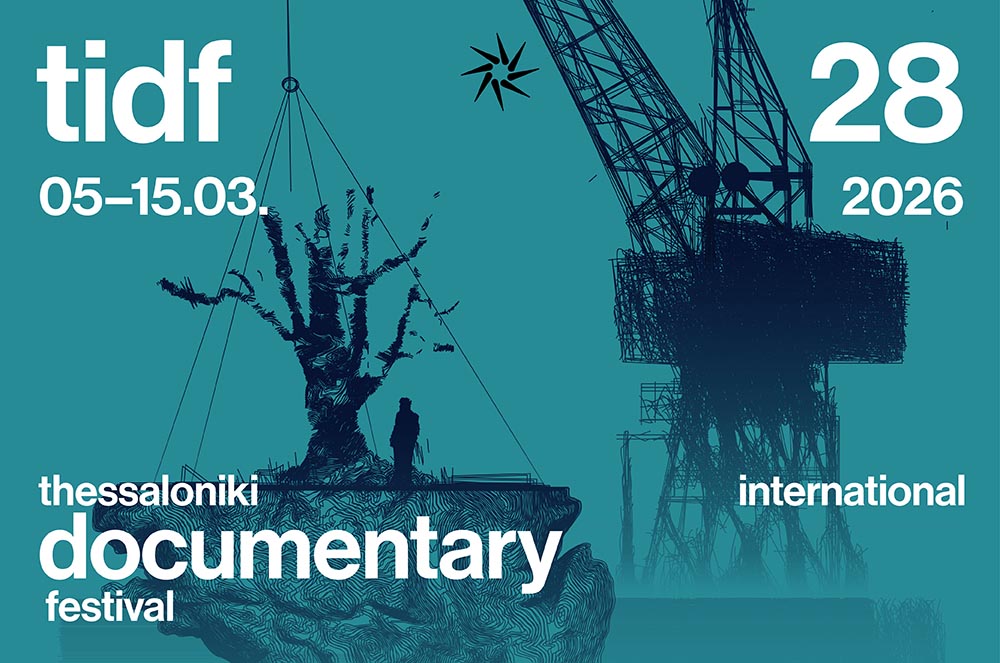The screening of the film F@ck This Job by Vera Krichevskaya, which is part of the 24th TDF’s Post-Reality tribute, as well as included in the Open Horizons section, was carried out on Saturday March 19th, in an overflowing Olympion, in the presence of both the Russian director and Natasha Sindeeva, owner of channel Dozhd TV in Russia.
The screening was prefaced by Elise Jalladeau, General Director of the Festival, who welcomed Vera Krichevskaya and Natasha Sindeeva: “We are very proud to be able to host this screening. It is about issues that constantly emerge, not only in Russia, but throughout the whole world. Over 20 years ago, I produced a film by a Ukrainian director in Russia and I witnessed an attack on an independent TV station with which I was collaborating. The owner was forced to flee the country. Then, the war was raging in Chechnya. Today, it hit Ukraine. Attacks on independent journalists have never ceased to occur. This is why it is so important for us to show this film, because it is a lesson of bravery and a lesson of freedom”.
“It was a surprise to me that Natasha made it here today”, Vera Krichevskaya stated. “She is on the front page of newspapers from all over the world and today she is making her first public appearance since Dozhd TV was shut down”. The screening of F@ck This Job followed next. After the screening, Orestis Andreadakis invited Vera Krichevskaya and Natasha Sindeeva on stage, to respond to questions by the audience.
To a question about the sanctions of the West against Russia, Natasha Sindeeva commented: “I will express my personal opinion, since I am not here as a politician but as a human being. This exclusion does not affect Putin or the people around him: they affect only the common people, who have been victims of propaganda for many years. Common people cannot protest on the streets. After many interviews to Western media, we understand that there is a confusion in the West about how Putin makes his decisions. The moguls of Russia would not put pressure on Putin: he lives alone, no one knows who is close to him. There is a philosophical aspect to this issue: we are all partially responsible, in terms of collective responsibility. Maybe the understanding of our collective responsibility will arrive many years later”.
To a question about the foreclosure of private stations in Russia, and about the funding of Dozhd TV, Natasha Sindeeva responded: “Until recently, they had not managed to shut us down. We had, of course, a lot of disruption in our work. Even so, we always found a way to carry on. In 2014, we started to become excluded from all the platforms. They cut off our legs, our arms and, at the end, our head. We were discovering ways to broadcast the news, we changed broadcasting models. Regarding the funding, during the first years we depended on our personal savings, mainly to my ex-husband’s. We even sold our house. We believed that from 2014 we would start to gain profit. But after the annexation of Crimea, the Russian government was determined to shut us down. We were kicked out of our offices. However, we did not back down. We found the way, we changed location. We lived through hard years: we cut down the number of journalists, while we were constantly in debt, the channel subscriptions were not enough. We found a solution with the money we were getting from subscribers and our YouTube channel. In this way, we managed a few years ago to make profit and to expand. Our station has always celebrated freedom of speech: we never limited our journalists. We only demanded that they followed the Russian laws. In the office, we have a huge book, which includes the laws we should be considering in order to protect the journalists. Many journalists have been really brave and said some things, which would not be heard on any other station”.
Moving on, to a question about Vladimir Putin’s policy and the ways in which the West could help, Vera Krichevskaya took the floor: “Vladimir Putin is using Stalin’s rhetoric. In his speech to the Russian people, three days ago, he mentioned that there are national traitors in Russia, who are lured by Europe and European values. He was referring to our friends and our values. These people make up for 20% of Russia. The West can only help ethically and mentally in this endeavor: for three weeks now we have been crying and I may cry now as well. I see no scenario according to which the war will end. I see the terror in people’s eyes and I have a feeling that no one can stop Putin, otherwise I cannot explain the destroyed Ukrainian cities. In our film’s premieres in New York and then in Europe, we were approached by people and they would say: “we have never met Russians like you”. I hope it is evident by now that not all Russians support the war.”
To a question about the reaction to the war within Russia, following the video of the journalist protesting live, Natasha Sindeeva commented: “We do not personally know the journalist you are referring to, we do however know that she got a fine of 30,000 rubles. However, this is not the end of it, since a law was passed about fake news in Russia: if accused on the basis of this law, she may get a prison sentence of 15 years. She may leave Russia, she may be get an exemplary punishment so that no one does something similar again. There are a lot of journalists now resigning from national channels, a fact indicative of their opposition to what’s happening in Ukraine. However, those people have been for years aware of what they were doing and how they were affecting people in Russia, who are not conditioned to think critically. If it wasn’t for the propaganda, it is possible that we would not have come to this point. So many people support this war, but they do so because they have been brainwashed. Putin really believes that he’s saving the country with his decisions. The biggest part of the responsibility is probably attributed to the journalists”.















